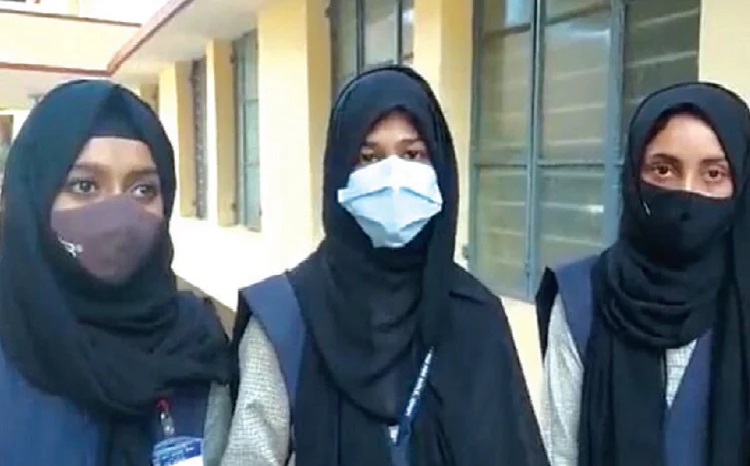Supreme Court judge Justice Sudhanshu Dhulia, in his remarks in the split verdict on the issue of the hijab ban in Karnataka, said that asking pre-university schoolgirl to take off their hijab before they enter schools was an invasion of privacy, an attack on dignity, and denial of secular education.
"This right to her dignity and her privacy she carries in her person, even inside her school gate or when she is in her classroom," said Justice Dhulia. He underscored that it was it an attack on their dignity, and then ultimately it is a denial to them of secular education. These are clearly violative of Article 19(1)(a), Article 21 and Article 25(1) of the Constitution.
He said this is the time when children should learn not to be alarmed by our diversity but to rejoice and celebrate this, and also this is the time when they must realise that diversity is our strength.
The judgment was delivered by a bench comprising Justices Hemant Gupta and Dhulia. While Justice Gupta dismissed the appeals challenging the Karnataka High Court judgment, Justice Dhulia set it aside and quashed the Karnataka government order dated February 5.
Major observations by Justice Dhulia:
1. Essential Religious Practices not the issue:
In Justice Dhulia's opinion, the question of Essential Religious Practices (ERP) was not at all relevant in the determination of the dispute before the court.
"Instead of straightaway taking the ERP route, as a threshold requirement, the court could have first examined whether the restriction imposed by the school or the government order on wearing a hijab, were valid restrictions?" noted Dhulia.
"We are concerned only with Article 25(1) and not with Article 25(2) or Article 26 of the Constitution of India. Whereas Clause 1 of Article 25 deals with individual rights, Article 25(2) and Article 26 of the Constitution of India, deal by and large with community-based rights. For this reason, the entire exercise done by the Karnataka High Court, in evaluating the rights of the Petitioners only on the touchstone of ERP, was incorrect."
Whether wearing hijab is an ERP in Islam or not is not essential for the determination of this dispute. If the belief is sincere, and it harms no one else, there can be no justifiable reasons for banning hijab in a classroom, he said.
"In my humble opinion courts are not the forums to solve theological questions. Courts are not well equipped to do that for various reasons, but most importantly because there will always be more than one viewpoint on a particular religious matter," stated Justice Dhulia.
2. It is a matter of choice
"Under our constitutional scheme, wearing a hijab should be simply a matter of choice. It may or may not be a matter of essential religious practice, but it still is, a matter of conscience, belief, and expression. If she wants to wear hijab, even inside her class room, she cannot be stopped, if it is worn as a matter of her choice, as it may be the only way her conservative family will permit her to go to school, and in those cases, her hijab is her ticket to education," Justice Dhulia said.
3. Should education be denied on issue of hijab?
The unfortunate fallout of the hijab restriction would be that we would have denied education to a girl child. A girl child for whom it is still not easy to reach her school gate. This case here, therefore, has also to be seen in the perspective of the challenges already faced by a girl child in reaching her school. The question this court would put before itself is also whether we are making the life of a girl child any better by denying her education merely because she wears a hijab, the judge said.
4. Karnataka HC order goes against constitutional values
The Karnataka Government Order dated 5 February, 2022, and the restrictions on the wearing of hijab, also goes against our constitutional value of fraternity and human dignity, he said.
5. An invasion of privacy
"By asking the girls to take off their hijab before they enter the school gates, is first an invasion on their privacy, then it is an attack on their dignity, and then ultimately it is a denial to them of secular education. These are clearly violative of Article 19(1)(a), Article 21 and Article 25(1) of the Constitution of India," Justice Dhulia noted.
6. Constitutional values
"Fraternity, which is our constitutional value, would therefore require us to be tolerant, and as some of the learned counsels would argue to be, reasonably accommodating, towards the belief and religious practices of others. We should remember the appeal made by Justice O Chinnappa Reddy in Bijoe Emmanuel case. 'Our tradition teaches tolerance; our philosophy preaches tolerance; our Constitution practices tolerance; let us not dilute it',” he said.
Kajal Agarwal


















































